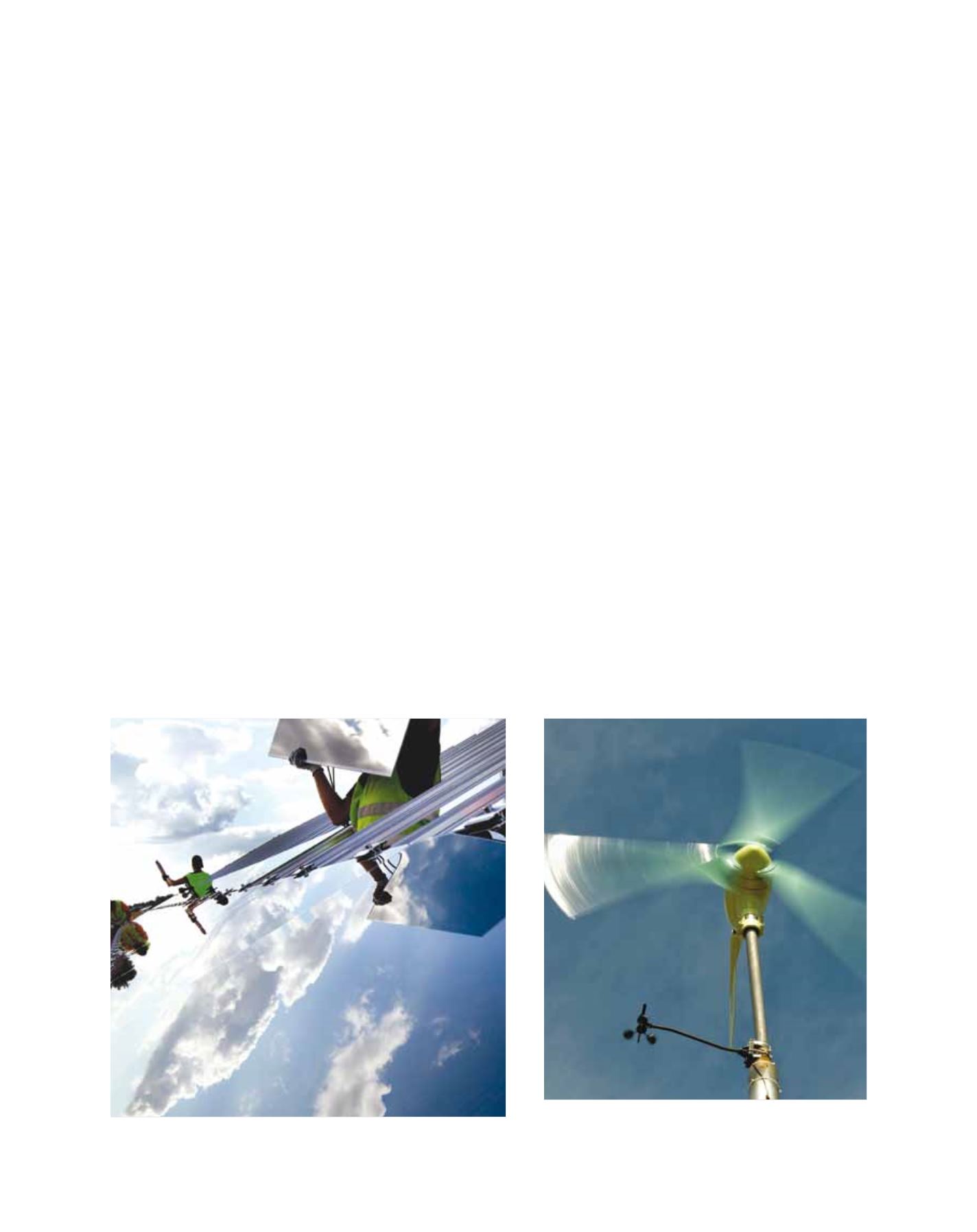

[
] 164
E
nergy
ones) more easily. It is our intention at EDF to develop a common
platform with climatic information and datasets to share data and
practices among the different directions and subsidiaries. This initi-
ative, called Pact Energy, could be enormously facilitated by the
development of climate services in the previously described way.
Efforts like those done in the framework of the European WATCH
project (water for utilities: climate change impacts on water quality
and water availability for utilities in Europe), to make forcing and
driving datasets available for hydrological and water thermal studies,
are very welcome. But such initiatives should get a more perennial
status. At the French national level, a new website called Drias: les
futurs du climat has recently been launched. It is designed to answer
the needs of the French practitioners and impact scientist communi-
ties by providing information on climate models and climate science
and an access to raw and bias-corrected climate results. Even though
the geographical coverage of these results is still limited to conti-
nental France, it is an important step toward useful climate services
and appreciable progress in the access to climate science results.
Following this movement toward climate services, different initia-
tives are taking shape, such as the recent climate Knowledge and
Innovation Consortium (Climate KiC) launched by the European
Commission. In this framework, projects involve climate scientists
and people from the industry around important impact and adapta-
tion issues, such as the E3P (Extreme Events and Energy Providers)
project. Similar projects exist at the national level as well.
The links between weather, climate and the energy industry have
also been focused in international conferences in recent years.
If the first of these were specialized sessions during conferences
organized by industry-specific organizations related to wind energy
(such as the American Wind Energy Association), solar energy
(such as SolarPACES) and meteorology (such as the European
Meteorological Society), the first International Conference, Energy
and Meteorology
4
provided a dedicated forum where people from
both fields could discuss recent research findings and
emerging practices, ranging from operational activities
to long-term investment planning and policy-making.
All these initiatives enable us to be optimistic regard-
ing the coming facilitation of impact studies, and thus
of an easier consideration of climate change in the
strategy and development plans of the energy indus-
try, for which weather and climate issues are crucial.
Progress in science and knowledge on its own is
not sufficient to increase the value of weather and
climate forecasts for any sector. This value can be
increased in three ways:
5
by an increase in the quality
of weather and climate information on the providers’
side, by an improvement in communication between
providers and users, and by an improvement in the
decision-making processes on the users’ side. The
three components can be improved separately, but the
whole process will be more efficient if the whole chain
is improved. This can be achieved only if an active
collaboration exists between the parties. Although
state-of-the-art scientific knowledge may put some
limitations on possible developments, it remains that
users’ needs should be taken into account upstream,
and then considered in an iterative process. This basic
statement should be considered carefully when devel-
oping climate services, in particular in the Global
Framework for Climate Services.
Further communication, collaboration and part-
nerships between NMHSs and energy companies are
therefore essential. This should allow us to develop
better answers to operational needs, but also to add
extra value to products provided by weather services.
Finally, it will be beneficial to society as a whole.
Image: © EDF, Philippe Eranian
Image: © MEEDDAT, Laurent Mignaux
Installation of solar panels
Small wind turbine at SEPEN (Site Experimental pour le Petit
Eolien de Narbonne), located at domaine de Montplaisir
















